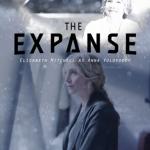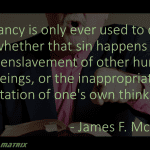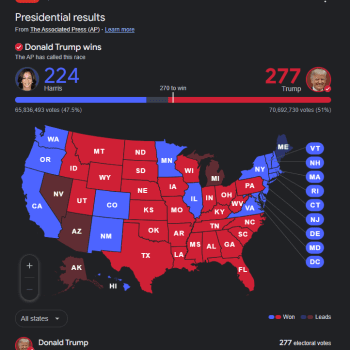On the same basic subject as another post a few days ago, a recent study found that religious fundamentalists and other dogmatic individuals are more likely to believe fake news:
It turns out that people who “endorse delusion-like ideation” are more likely to believe fake news — as are “dogmatic individuals and religious fundamentalists.” “The vulnerability of these individuals to belief in fake news was fully explained by their tendency to engage in less analytic and actively open-minded thinking…” the authors write. “The present studies suggest that delusion-prone and dogmatic individuals, as well as religious fundamentalists, are more likely than others to believe fake news in large part because they exhibit reduced analytic and actively open-minded thinking. This suggestion points to potential interventions that may keep individuals from falling for fake news and lays the groundwork for future fake news research.”
Hemant Mehta also highlighted an article by Francesca Tripodi recently, “Searching for Alternative Facts,” which found a close connection between how people who are religiously and politically conservative read/cite the Bible, and how they interact with the internet and news sources. Here’s the pull quote:
They critically interrogate media messages in the same way they approach the Bible, focusing on specific passages and comparing what they read, see, and hear to their lived experiences.
I term this media interrogation process scriptural inference.
Mehta also linked to an interview with Tripodi about her ongoing research in this area. There she says:
I’m not saying that all constitutional conservatives even go to Bible study. But this practice of returning to an authoritative text and leveraging your own personal dissection of it, rather than accepting an elitist interpretation of a text, is fundamentally bound to this practice within Protestant evangelical churches.
There is something genuinely intriguing about this. At its heart, however, it seems that confirmation bias remains a major factor in the overall process in ways that are already quite familiar to us. After all, when liberal political sources are reported in mainstream media outlets and there are slight variations in the wording, conservatives apparently treat this as evidence of “fake news” and the sources are dismissed. And yet it isn’t clear that their Bible studies, or their own personal reading of the Bible, is exploring the differences both minor and major between the different reports about what Jesus and others said.
Be that as it may, this is a fascinating area of investigation, and I look forward to reading more about Tripodi’s research.













